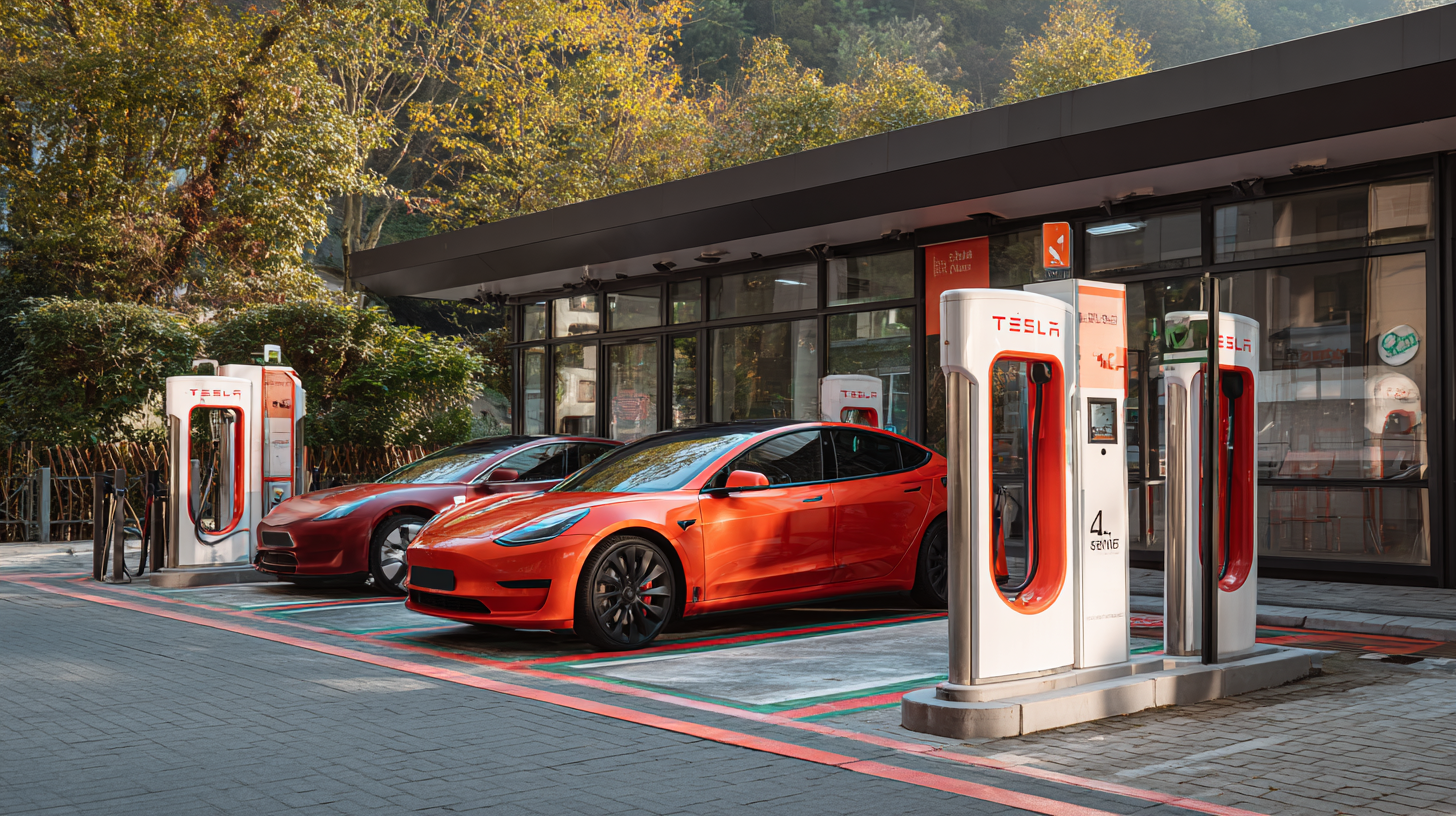Unlocking the Potential of Best Electric Charging Stations Through 7 Real World Applications
As the world transitions toward a more sustainable future, the demand for Electric Charging Stations has surged significantly. According to a report by MarketsandMarkets, the global electric vehicle (EV) charging infrastructure market is expected to grow from $3.8 billion in 2020 to $30.7 billion by 2027, representing a stunning CAGR of over 35%. This growth is driven by the increasing adoption of electric vehicles, government incentives, and a growing awareness of the need for eco-friendly transportation solutions.

Best Electric Charging Stations are pivotal in supporting this transition, providing users with convenient, fast, and reliable charging options.
This blog will explore seven real-world applications of Electric Charging Stations that highlight their transformative potential and the essential role they play in promoting electric mobility around the globe, all underpinned by the unwavering quality that China's manufacturing offers.
Identifying Key Features of Quality Electric Charging Stations
When choosing quality electric charging stations, several key features distinguish the best options in the market. According to a recent report by the International Energy Agency (IEA), the global number of electric vehicles (EVs) is projected to reach 145 million by 2030. With this surge, the demand for effective charging solutions is paramount. High-quality charging stations not only provide fast charging capabilities but also feature user-friendly interfaces and smart technology integration, such as app connectivity for real-time usage data and availability alerts.
Moreover, the American National Standards Institute (ANSI) emphasizes the importance of safety and reliability in electric charging stations. Features such as built-in safety protocols, the ability to withstand various weather conditions, and compatibility with multiple EV brands are essential. The best stations often incorporate modular designs that allow for scalability and upgrades as technology advances. As the EV market evolves, focusing on these key features ensures that charging infrastructure can meet the growing needs of consumers and contribute to a sustainable automotive future.
Evaluating Supplier Reliability and Reputation in the EV Market
In the growing electric vehicle (EV) market, assessing supplier reliability and reputation is crucial for both consumers and businesses. When choosing an electric charging station, it’s essential to consider the supplier's track record. A reputable supplier often showcases positive reviews, industry certifications, and a history of successful installations. By doing thorough research on their service record and client testimonials, you can ensure that you’re making a wise investment in a quality charging solution.
**Tips:** Look for suppliers who provide transparent information about their products and services. Also, consider reaching out to existing customers to get firsthand accounts of reliability and post-installation support. This feedback is invaluable in evaluating whether a supplier can meet your charging needs effectively.
Furthermore, it's vital to examine the supplier's commitment to innovation and adaptability. The EV market is rapidly evolving, with technology advancing at an unprecedented pace. Suppliers who invest in research and development are likelier to offer robust, future-proof solutions.
**Tips:** Keep an eye on suppliers who participate in industry events or partnerships, as this often indicates a proactive stance toward emerging technologies and trends. By prioritizing suppliers with a strong reputation for reliability and a focus on innovation, you can unlock the full potential of electric charging stations for your EV needs.

Understanding the Importance of Location for Charging Stations
The importance of location for electric charging stations cannot be overstated.
Strategically placed charging points can significantly enhance the usability of electric vehicles (EVs), helping to alleviate range anxiety among potential users.
By situating charging stations near popular destinations such as
shopping centers,
parks,
and dining establishments, EV owners are encouraged to integrate charging into their daily routines seamlessly.
This not only promotes the widespread adoption of electric vehicles but also facilitates longer trips without the fear of running out of power.
Moreover, understanding traffic patterns and commuter behavior can inform the best placement of charging stations.
Locations near major highways and transit hubs are ideal, as they cater to long-distance travelers and daily commuters alike.
Additionally, integrating charging stations into existing infrastructure, such as parking lots or public transportation hubs, maximizes convenience and accessibility.
As cities become more focused on sustainability, the successful implementation of charging station networks will hinge on their strategic location, ensuring that EV users find it easy and convenient to recharge, ultimately supporting the shift towards greener transportation solutions.
Comparing Cost-Effectiveness of Different Charging Solutions
When considering the cost-effectiveness of electric vehicle (EV) charging solutions, a comparative analysis reveals a spectrum of options influenced by various factors. For instance, integrating renewable energy resources (RERs) and battery energy storage systems (BESS) with traditional charging solutions can significantly reduce operational costs and enhance sustainability. This approach not only mitigates emissions but also optimizes energy use during peak charging times.
**Tip:** If you're contemplating an EV charging setup, explore whether local incentives exist for integrating solar power or home battery systems, which can diminish your overall expenses.
Moreover, the optimization of electric charging infrastructure emerges as a crucial aspect of enhancing efficiency. New models that align routing and charging coordination with energy-aware operations enable better management of energy distribution while minimizing costs. This helps in making informed decisions about EV charging investments.
**Tip:** When choosing charging stations, consider evaluating the installation costs in relation to their long-term savings potential. Researching various brands can uncover options that minimize your total cost of ownership while maximizing charging efficiency.
Building Partnerships with Charging Station Suppliers for Long-Term Success
As electric vehicle (EV) adoption accelerates globally, building strategic partnerships with charging station suppliers becomes essential for long-term success in this rapidly evolving market. According to recent industry reports, a national network of charging stations that caters to consumer demand can significantly facilitate the transition to EVs. By investing in collaborations that enhance infrastructure readiness, businesses can not only improve customer satisfaction but also optimize their service offerings, ultimately leading to sustained revenue growth.
Innovative models are emerging from places with burgeoning EV markets. For instance, countries like China, which remains a leader in EV production, have demonstrated that understanding local market dynamics is crucial. Research indicates that there is an increasing demand for affordable EV options, emphasizing the need for partnerships that can contribute to cost-effective charging solutions. These alliances can help stakeholders navigate market uncertainties and elevate the overall user experience, fostering greater acceptance and usage of electric vehicles.
Furthermore, the integration of advanced technologies such as semiconductor innovations will play a pivotal role in enhancing charging station efficiency. The recent establishment of research facilities focused on semiconductor advanced packaging illustrates a commitment to advancing infrastructure that supports both EVs and AI-driven solutions for optimal charging experiences. This holistic approach to building partnerships not only strengthens the charging ecosystem but also aligns with the larger objective of promoting sustainable transportation solutions.

